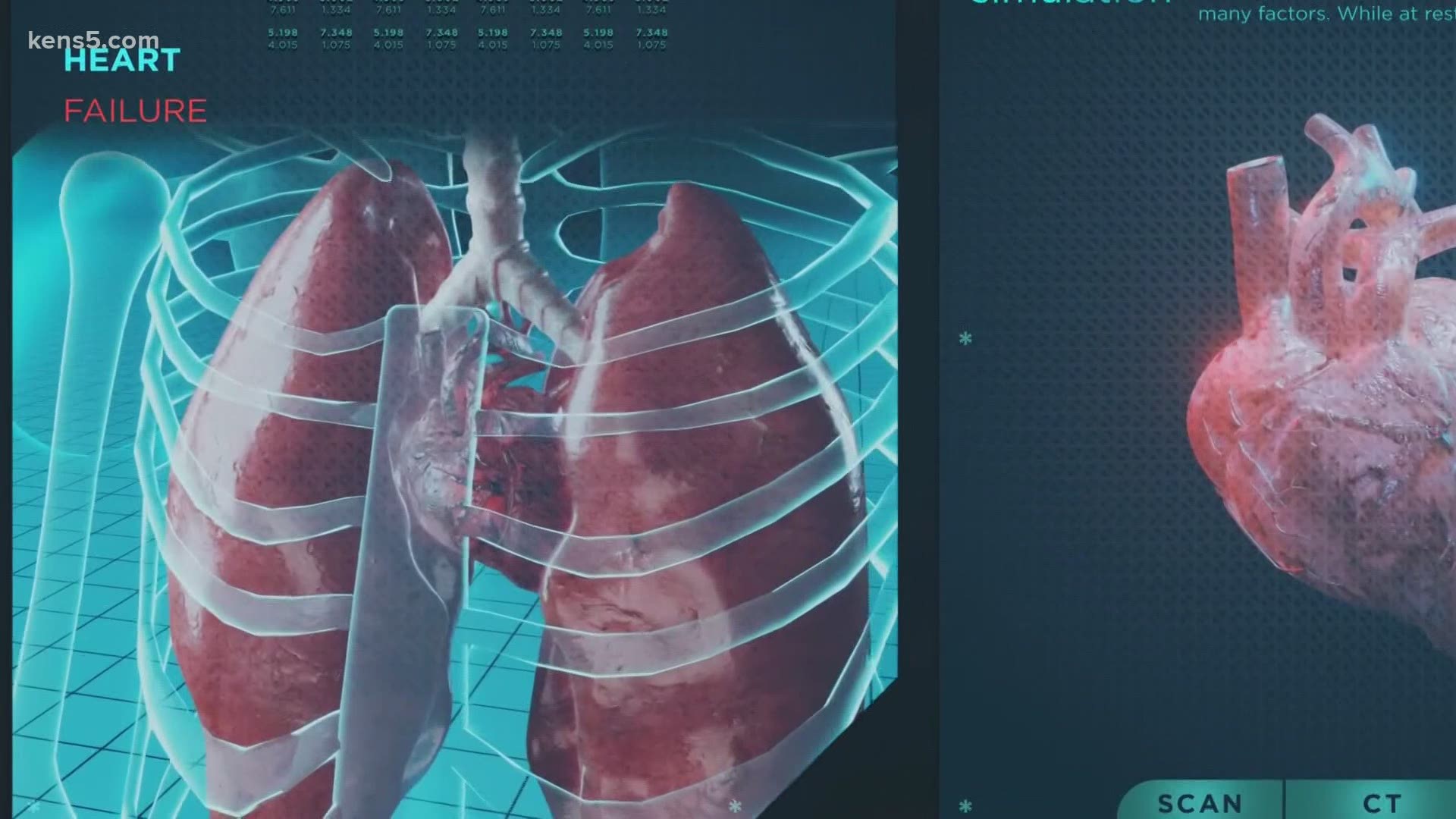SAN ANTONIO — Recognizing the signs of a heart problem isn't always crystal clear. That is especially the case when confusing medical terms are thrown into the mix.
Heart disease and heart failure are often confused by many patients. Heart failure is a type of heart disease. But both of those can often be avoided by understanding the difference and knowing what to look for.
"What heart failure is is a condition in which to the heart is unable to pump enough blood to meet the needs of the body, or if it does so it does so in a way that patients who have this problem have a tremendous amount of symptoms because the heart isn't functioning optimally," said Dr. Allen Anderson who is the Director of the Heart and Vascular Institute at University Health and UT Health San Antonio, and is also the Chief of Cardiology at UT Health San Antonio. He says some of the early signs of heart failure are often missed.
"The earliest symptoms can be things like a cough, fatigue, wheezing, symptoms that make people think they have an upper respiratory tract infection," Dr. Anderson told us.
Once heart failure progresses these symptoms should be a red flag to head to your doctor. Chest pain, fainting or severe weakness are some of them. Also, a rapid or irregular heartbeat, shortness of breath even when lying down, coughing up pink or foamy mucus. Dr. Anderson says a heart attack can often lead to heart failure as well.
"People think that a heart attack means your heart actually stops beating or you drop dead, but that's not really what a heart attack is. A heart attack is a situation that arises when blood flow to your heart muscle is cut off for a period of time and because that blood flow is interrupted to the heart muscle the heart muscle begins to die," he said.
Dr. Anderson also told us how heart disease and heart attacks are often confused among patients.
"There are a variety of things that heart failure is not and I think that it is important to understand that heart failure is not a heart attack. Heart failure is not a problem that leads to immediate death all the time it is a chronic medical condition. As a chronic medical condition it is a condition that needs chronic treatment. It can be successfully treated some patients can live many many years with chronic heart failure and in some cases heart failure can be reversed," he said.
Medical advancements have also helped extend life spans when it comes to heart issues.
"As we’ve been able to treat heart attacks much better we’ve actually been able to change the course of what happens. There are patients now that survive heart attacks that would’ve historically died from the heart attack. Even though you see the incidence of heart attacks going down the incidence of heart failure are going up because those patients who survive their heart attack go on to develop heart failure. There’s another population of heart attack patients who we get to early enough who don’t die from heart failure. So our ability to treat heart attacks are much better that has both reduced some peoples chances of developing heart failure but increased their risk of heart failure because patients are dying," Dr. Anderson added.
Dr. Anderson says to listen to your body. If you feel something just isn't right, consulting your doctor is the best way to go.

